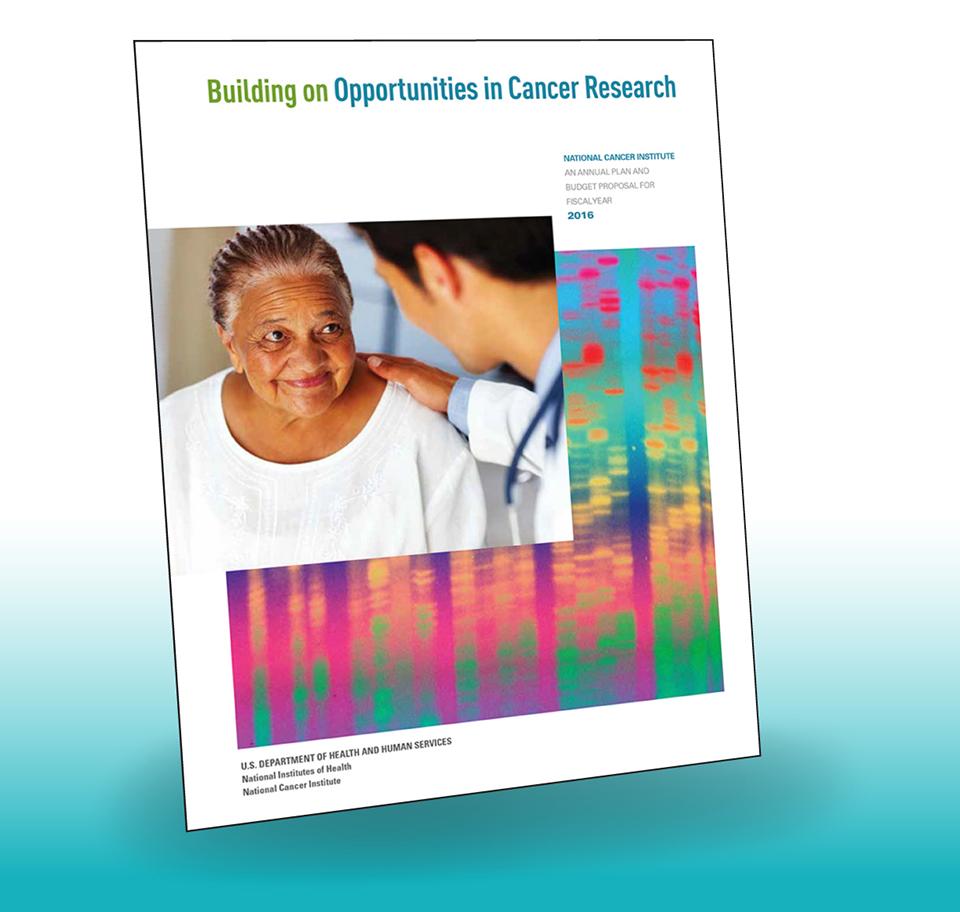By Nancy Parrish, Staff Writer; image by Richard Frederickson, Staff Photographer
The additional funding requested for Frederick National Laboratory for Cancer Research (FNLCR) in the Fiscal 2016 Bypass Budget was $25 million, or approximately 3.5 percent of the total additional funding request of $715 million.
Officially called the Professional Judgment Budget, the Bypass Budget is a result of the National Cancer Act of 1971, which authorizes NCI to submit a budget directly to the president, to send to Congress. With a focus on NCI’s research priorities and areas of cancer research with potential for investment, the Bypass Budget specifies additional funding, over and above the current budget, that is needed to advance progress being made in preventing, diagnosing, and treating cancer.
In his December 2, 2014, e-mail to all NCI staff, Harold Varmus, M.D., then director of NCI, said that the Bypass Budget “highlights promising directions in cancer research and requests a level of Federal funding that would allow us to make more rapid progress towards reducing the burden of cancer in the United States and around the world during these fiscally austere times.”
Four FNLCR Programs Specifically Cited
Varmus’s Bypass Budget recommendations specifically noted the accomplishments of four FNLCR programs.
The Biopharmaceutical Development Program (BDP) was highlighted for its production of “novel antibodies and other proteins that require early development or are not ready for industry to take on,” and used the specific example of ch14.18, which BDP produced for the clinical trials related to pediatric neuroblastoma “because there was no commercial producer.”
The Nanotechnology Characterization Laboratory (NCL) was cited for “providing critical infrastructure and characterization services to nanomaterial providers,” thereby accelerating “the transition of basic nanoscale particles and devices into clinical applications.” It was also noted that NCL has helped establish standards for nanoparticles and plays a significant role in educating the next generation of nanotechnologists.
For its contributions to advancing discoveries for new cancer therapeutics, the NCI Experimental Therapeutics (NExT) program was highlighted for consolidating “NCI’s anticancer drug discovery and development resources in support of a balanced therapeutics pipeline, from the validation of new targets to evaluation in phase III clinical trials.” Specifically cited were the treatments for ovarian cancer and mesothelioma using a combination of “promising molecules, such as cediranib (AZD2171), an angiogenesis inhibitor, and olaparib (AZD2281), which inhibits the repair of DNA damage.”
The RAS Initiative was also highlighted because of its effort “to develop effective therapies against tumors that contain mutations in members of the RAS family of oncogenes.”
The complete NCI Bypass Budget, as well as other budget information related to NCI, is available on the NCI website.


